Demand for minimally invasive treatments continues to rise around the world. Interventional radiology (IR) in pediatric patients is indicated for a broad range of conditions and has numerous advantages over more traditional surgical options, often significantly decreasing associated morbidity and mortality. Examples include image guided abscess drainage, nephrostomy and biliary tube placement, uterine fibroid embolization, and embolization in the setting of trauma, GI bleed, treatment of vascular malformations or postpartum hemorrhage. However, many low-income countries have limited or complete lack of IR services. According to the WHO over 4 billion people globally lack access to diagnostic imaging, with likely more than 5 billion lacking access to IR. As of 2017, there was not a single interventional radiologist in Tanzania, leaving a population equivalent to that of California and New York combined without access to a broad range of life-saving treatments. Over the past four years, Road2IR has initiated East Africa’s first IR training program, training the first generation of interventional radiologists in the country. Africa’s first Master of Science in IR curriculum at Muhimbili University in Dar es Salaam was officially announced in October 2019 ( https://medicine.yale.edu/news-article/yales-tanzania-interventional-radiology-initiative-approved-for-msc-program/ ), which gives testament to the rapid progression of the training program. An overview of the program was published in the Journal of Vascular and Interventional Radiology in 2019 ( https://www.jvir.org/article/S1051-0443(19)30687-6/pdf ). In 2021 the first class of three fellows graduated, which will be followed by graduation of 7 fellows in August 2022.
While this program most immediately serves the 60 million people living in Tanzania, training IR physicians locally will have regional impact. One of the first IR fellows who graduated with the first class in 2021 in Tanzania is from Rwanda and has returned there as the first IR physician in the country. He has already begun the process of expanding these efforts there and plans to begin training the first generation of Rwandan IR trainees in late 2022. One of the prospective 2022 graduates in Tanzania is from Nigeria and will return there are completion of her training and start her own program in Nigeria. As such, our goal is to eventually serve the entire population of sub-Saharan Africa.
Expanding the many obvious benefits IR already provides to patients in high income nations can be quickly expanded to billions of people around the world in low-income nations by training young physicians locally. IR provides a broad range of life-saving procedures and can have an immediate impact, as has been demonstrated in Tanzania over the past several years. I want to support and expand these efforts and contribute to building IR services in Africa, potentially reaching over one billion people who currently have no access to these important treatments.
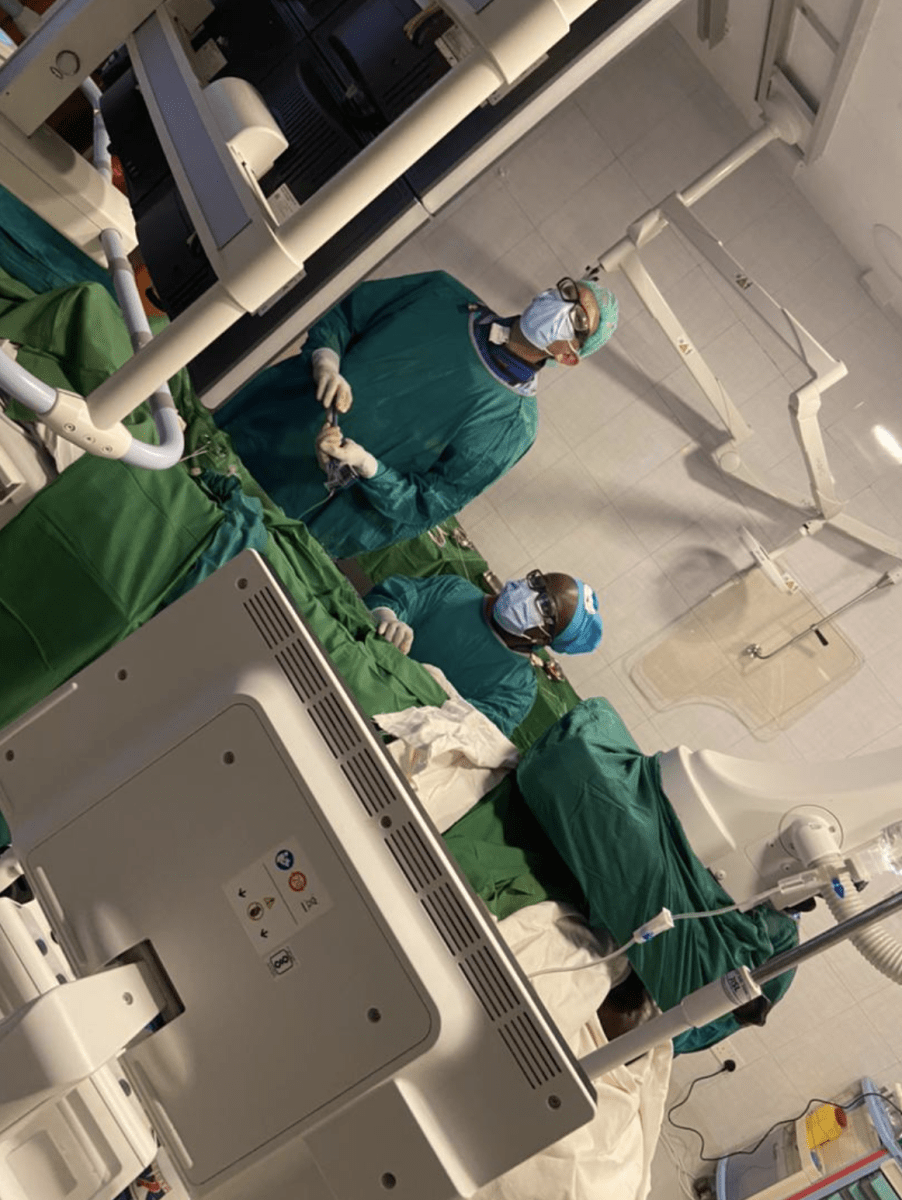
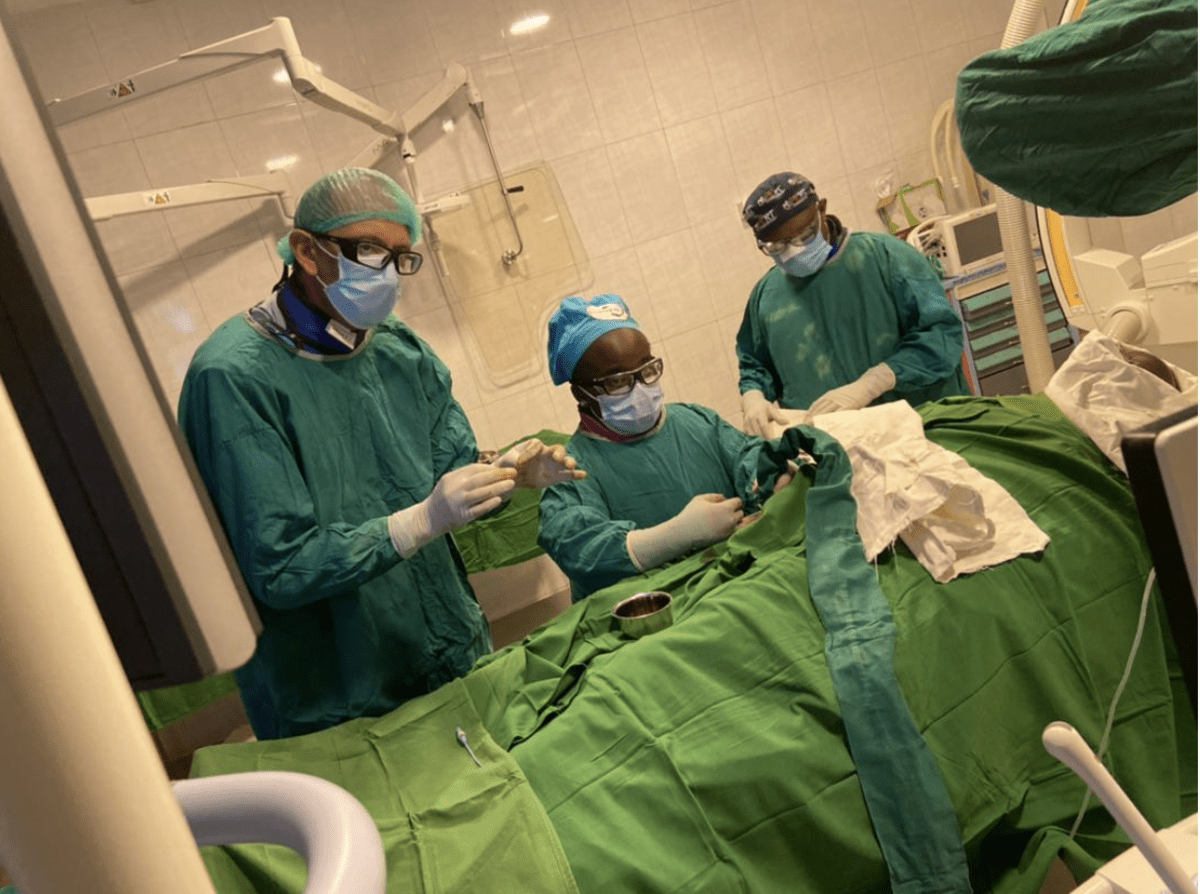
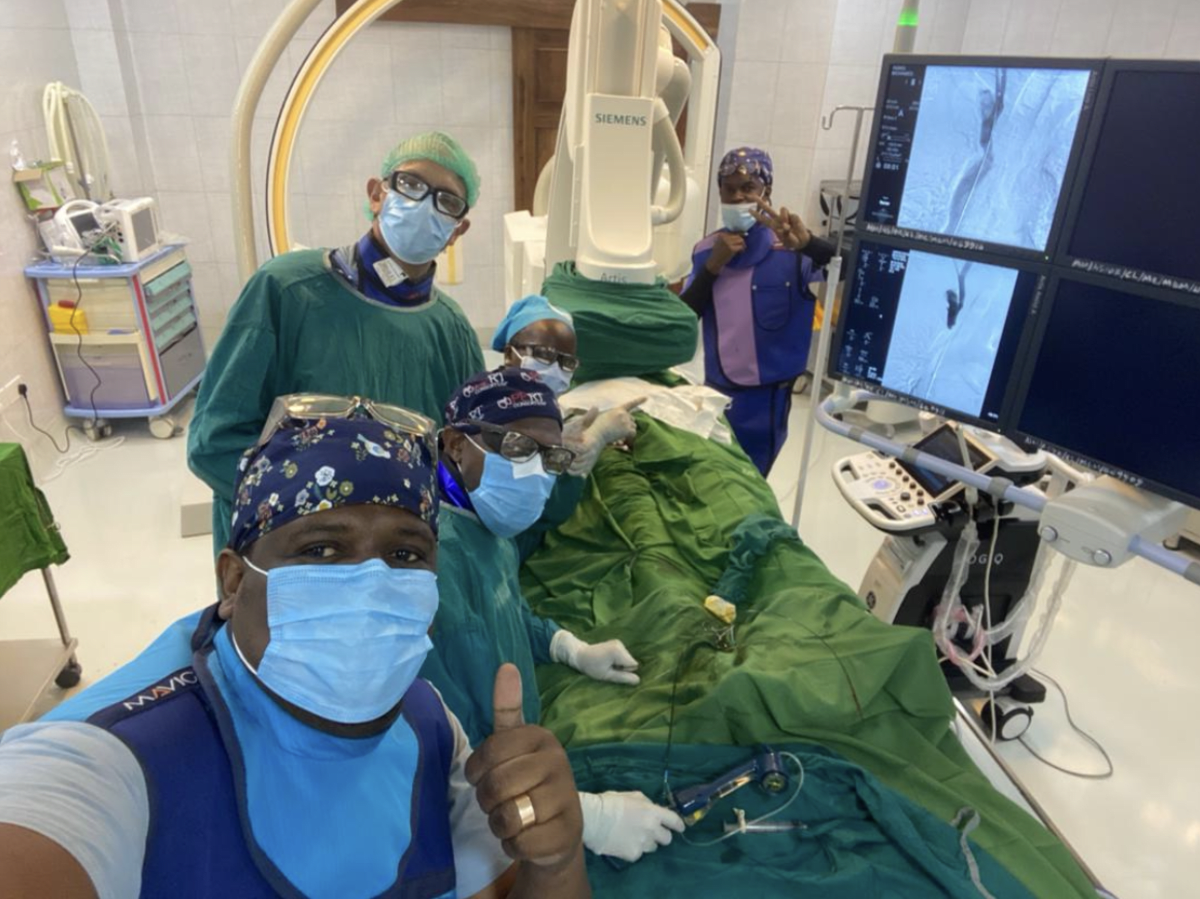
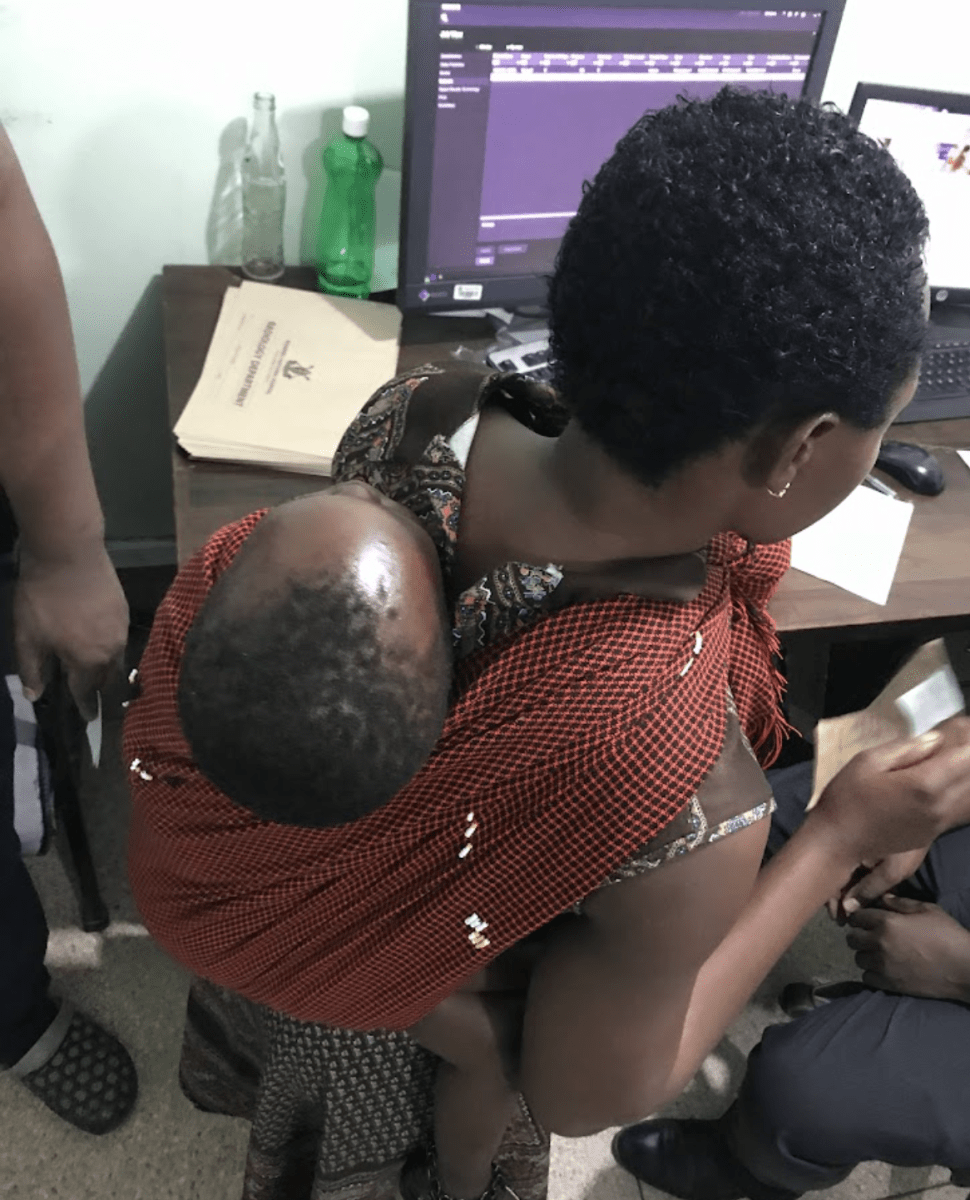
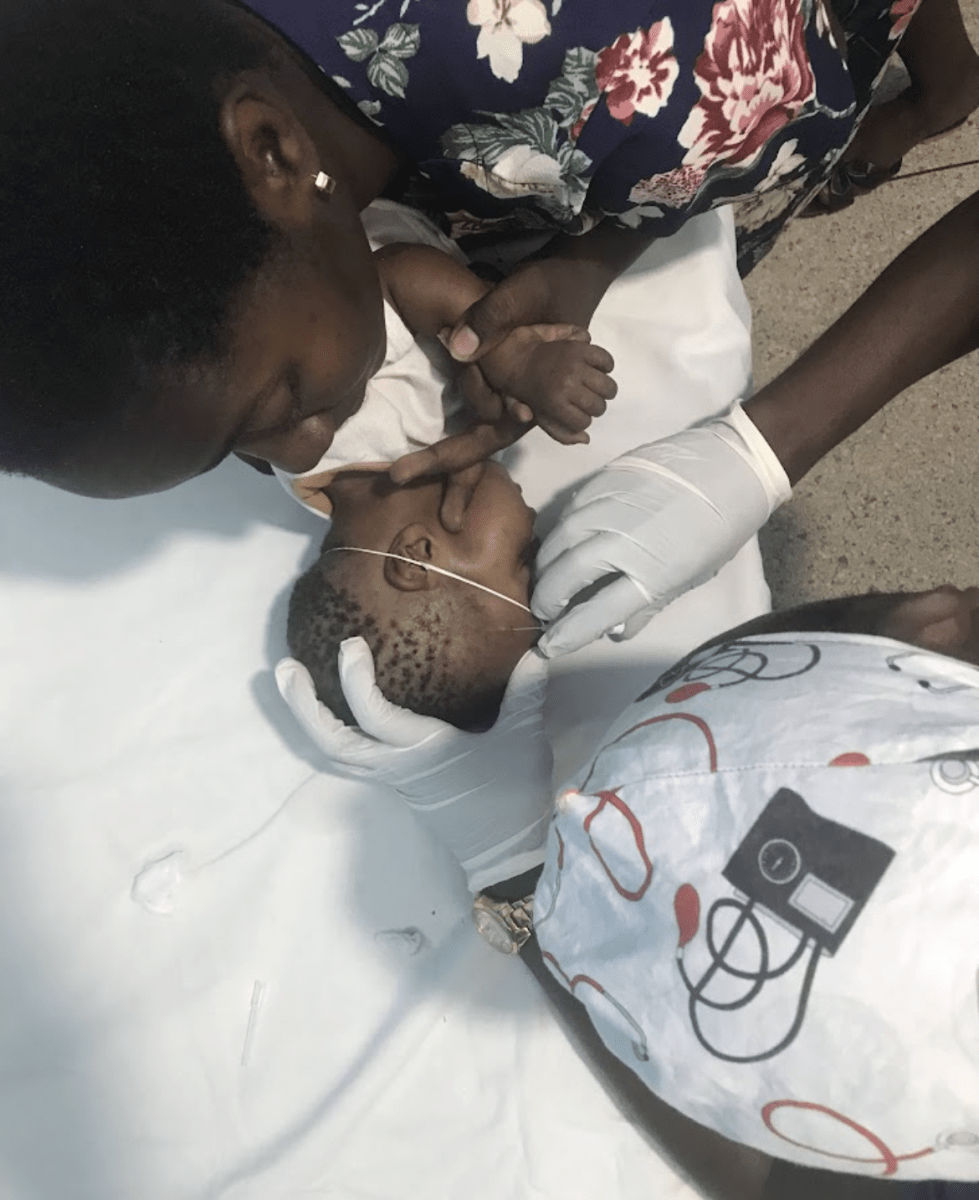





Working at a third level hospital in one of the largest medical centers in the world, I have interacted on regular bases with physicians from surgical specialties with great involvement on Global Health. Many times, while chatting about medical missions overseas, I asked them about opportunities to get involved as a pediatric IR physician. This year, through an online forum from the Society of Interventional Radiology, I learned about “road2ir.org”. This is an interventional radiology initiative to improve the medical care of less-fortunate people in Tanzania, East Africa. This trip to Tanzania was the perfect opportunity that I was waiting for.
Dar es Salam is the hometown of Muhimbili National Hospital, the only hospital in the country with the infrastructure and means to provide more advanced therapies. They recently approved a fellowship in IR to train future IR generation of physicians. The need for training is huge and the potential for changing the medical care not only in the people of the country but also of the east Africa region, undeniable.
I got hooked, and with the support of the Doximity Foundation, I was able to travel to Dar es Salam in September for 2 rewarding weeks. As a visiting professor, I had the opportunity to spend time with the IR fellows at MNH, to teach them about my current practice, to scrub with them during the cases. l also learned a lot from them, a lot from their country and their people. It was a very humbling experience. Without a doubt, one of the highlights of my career.